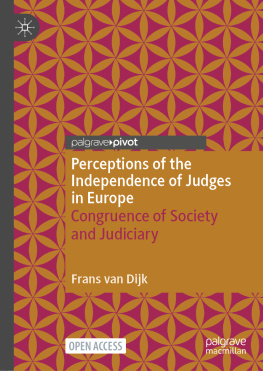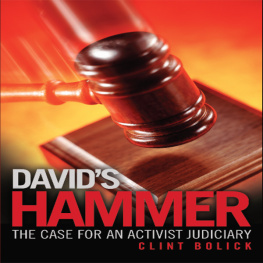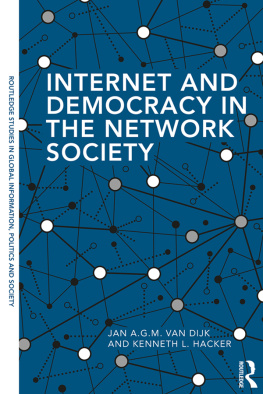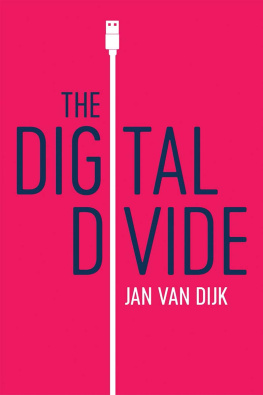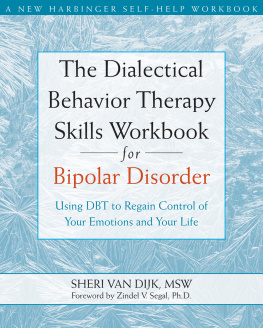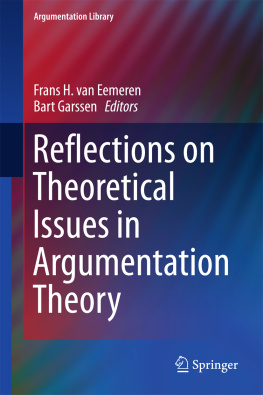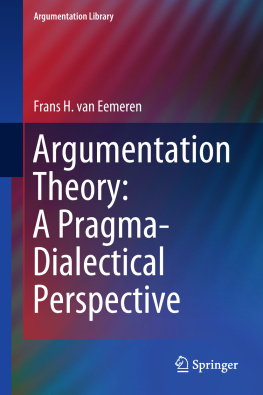Frans van Dijk - Congruence of Society and Judiciary
Here you can read online Frans van Dijk - Congruence of Society and Judiciary full text of the book (entire story) in english for free. Download pdf and epub, get meaning, cover and reviews about this ebook. year: 2021, publisher: Springer International Publishing, genre: Politics. Description of the work, (preface) as well as reviews are available. Best literature library LitArk.com created for fans of good reading and offers a wide selection of genres:
Romance novel
Science fiction
Adventure
Detective
Science
History
Home and family
Prose
Art
Politics
Computer
Non-fiction
Religion
Business
Children
Humor
Choose a favorite category and find really read worthwhile books. Enjoy immersion in the world of imagination, feel the emotions of the characters or learn something new for yourself, make an fascinating discovery.
- Book:Congruence of Society and Judiciary
- Author:
- Publisher:Springer International Publishing
- Genre:
- Year:2021
- Rating:5 / 5
- Favourites:Add to favourites
- Your mark:
- 100
- 1
- 2
- 3
- 4
- 5
Congruence of Society and Judiciary: summary, description and annotation
We offer to read an annotation, description, summary or preface (depends on what the author of the book "Congruence of Society and Judiciary" wrote himself). If you haven't found the necessary information about the book — write in the comments, we will try to find it.
Congruence of Society and Judiciary — read online for free the complete book (whole text) full work
Below is the text of the book, divided by pages. System saving the place of the last page read, allows you to conveniently read the book "Congruence of Society and Judiciary" online for free, without having to search again every time where you left off. Put a bookmark, and you can go to the page where you finished reading at any time.
Font size:
Interval:
Bookmark:
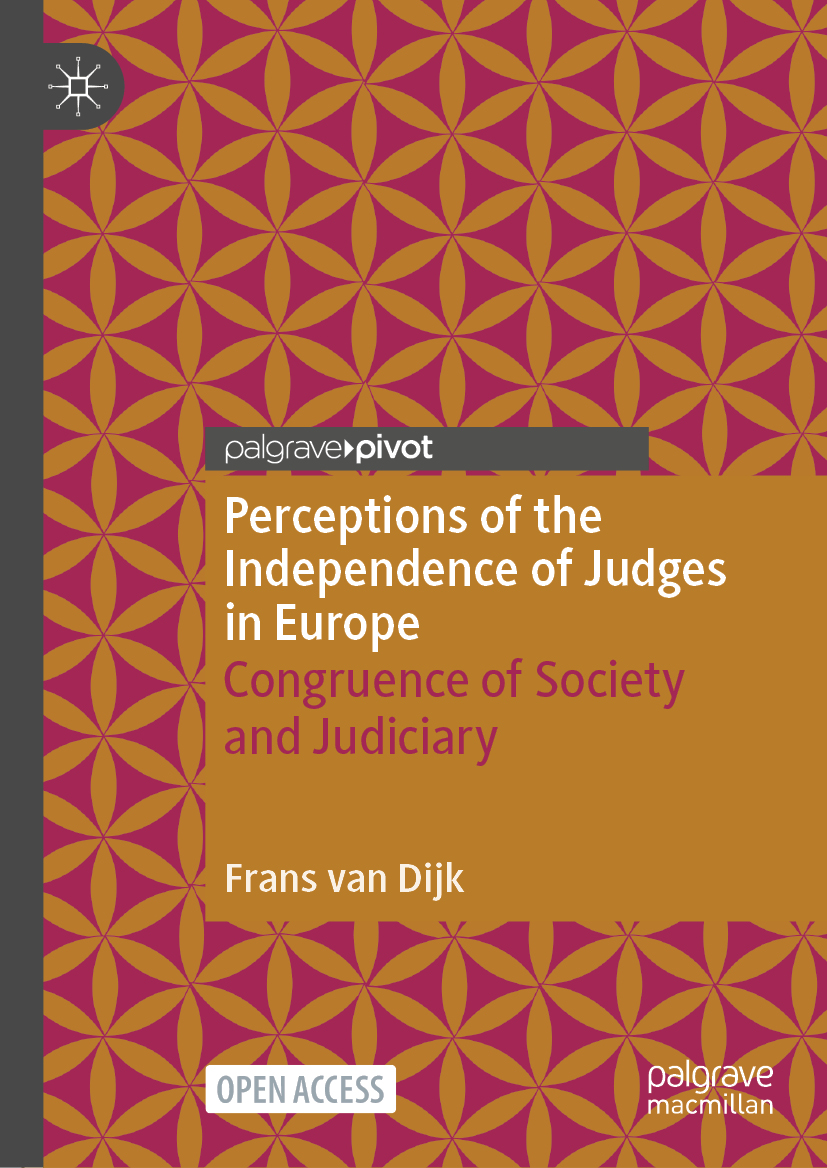


Open Access This book is licensed under the terms of the Creative Commons Attribution 4.0 International License ( http://creativecommons.org/licenses/by/4.0/ ), which permits use, sharing, adaptation, distribution and reproduction in any medium or format, as long as you give appropriate credit to the original author(s) and the source, provide a link to the Creative Commons license and indicate if changes were made.
The images or other third party material in this book are included in the book's Creative Commons license, unless indicated otherwise in a credit line to the material. If material is not included in the book's Creative Commons license and your intended use is not permitted by statutory regulation or exceeds the permitted use, you will need to obtain permission directly from the copyright holder.
Pattern Melisa Hasan
This Palgrave Macmillan imprint is published by the registered company Springer Nature Switzerland AG
The registered company address is: Gewerbestrasse 11, 6330 Cham, Switzerland
This book is about the perception of the independence of the judiciary in Europe. Do citizens and judges see it in the same way? Do judges feel that their independence is respected by the users of the courts, by the leadership of the courts and by politicians? Does the population trust the judiciary more than other public institutions, or less? How does independence of the judiciary work at the national level and at the level of the European Union? These interrelated questions are particularly relevant in times when the independence of the judiciary is under political pressure in several countries in the European Union. The judiciary may not have direct democratic legitimacy, but how the judiciary and its core value, independence, are perceived in society is stillor even more soimportant. At the end of the day, these perceptions determine popular support of the judiciary in society, and thereby its position in the trias politica.
Surveys among judges, lay judges and lawyersin addition to regular surveys among the general public organized by the European Commissionprovide a wealth of information to answer all of these questions. The surveys were conducted by the European Network of Councils for the Judiciary (ENCJ), encompassing all countries that participated in its work, whether or not these countries have councils for the judiciary. The surveys are a part of the ENCJs efforts to improve independence and accountability of the judiciaries of Europe, by setting standards and measuring the realization of these standards, as well as measuring independence and accountability in general. The survey among lawyers was organized together with the Council of Bars and Law Societies of Europe (CCBE).
These instruments were developed in a project I coordinated, on behalf of The Netherlands Council for the Judiciary. At that time, I was director of The Netherlands Council. This book was not commissioned by the ENCJ and does not necessarily reflect the opinion of the ENCJ, and neither does it reflect the opinion of The Netherlands Council for the Judiciary. I wrote this book in my capacity as professor of Empirical Analysis of Legal Systems at the Montaigne Centre for Rule of Law and Administration of Justice of Utrecht University. The book combines the outcomes of the surveys that have been conducted in this field. Its approach is primarily descriptive. It presents descriptive statistics, and occasionally some linear regressions, primarily for the purpose of illustration. I hope the analysis presented here is accessible to a broad audience. This is a first step, and further research is needed into the underlying mechanisms of the formation of perceptions of judicial independence.
I would like to thank the colleagues from the judiciaries of Europe that participated in the development and execution of the ENCJ-surveys, and in particular past and present presidents of the ENCJ, Geoffrey Vos, Nuria Diaz Abad, Kees Sterk and Filippo Donati, and the director of the ENCJ, Monique van der Goes. The survey among lay judges was made possible by Wiggo Storhaug Larssen. I would like to thank Sarah Koolen, in particular, for doing much of the organizational work on the surveys. Chapter 4 of this book contains joint work with Bart Diephuis and Frank van Tulder of The Netherlands Council for the Judiciary. I would like to thank Bart Diephuis for additional statistical analyses. And finally, I would like to thank the ENCJ and the Montaigne Centre for covering the costs of open access.
The central question that this book will try to answer is whether there is a lack of alignment andin the extremea disconnect between the judiciary and society in countries of Europe (EU and UK). This central question is developed into six sub questions. The sub questions focus on perceptions of judicial independence by various actors, their respect for independence and the trust of the general public in the judiciary.
No state can do without a judiciary, but that does not mean that the judiciary is aligned with the population and appreciated by it. It is generally believed that a high degree of judicial independence is necessary for people to appreciate and trust the courts. After all, the fair and effective resolution of disputes requires an independent and impartial adjudicator, irrespective of the parties and interests involved. In turn, trust is seen as necessary for courts to be able to function, if only to incite people to bring their disputes to court, to cooperate with the court and to accept judgments willingly. The causal relationship between judicial independence, trust and reliance on the courts puts sharp focus on judicial independence as it is perceived by the population and all segments thereof. Courts may be fully independent, but if the population does not recognize this independence , the causal relationship is disrupted.
Font size:
Interval:
Bookmark:
Similar books «Congruence of Society and Judiciary»
Look at similar books to Congruence of Society and Judiciary. We have selected literature similar in name and meaning in the hope of providing readers with more options to find new, interesting, not yet read works.
Discussion, reviews of the book Congruence of Society and Judiciary and just readers' own opinions. Leave your comments, write what you think about the work, its meaning or the main characters. Specify what exactly you liked and what you didn't like, and why you think so.

